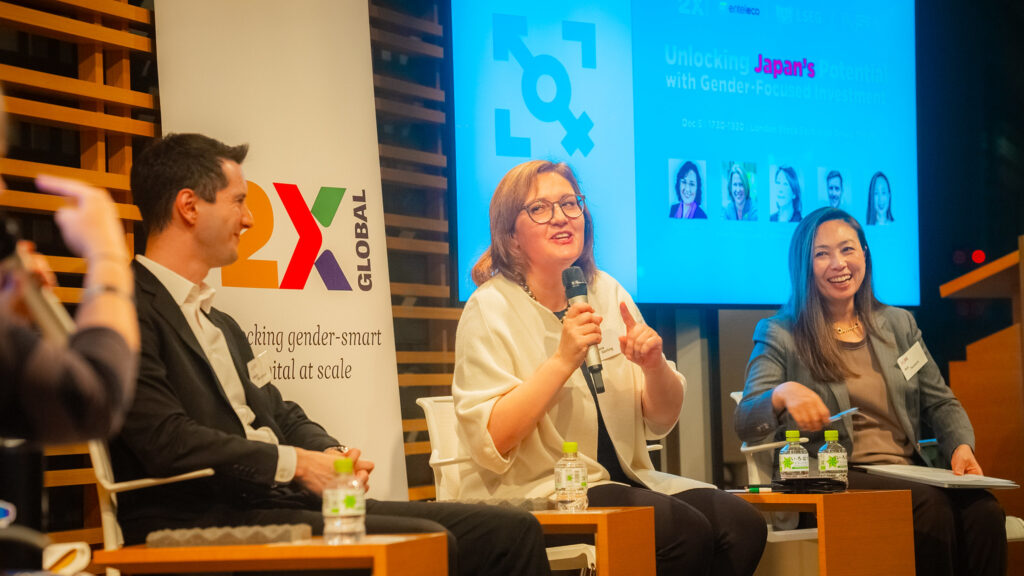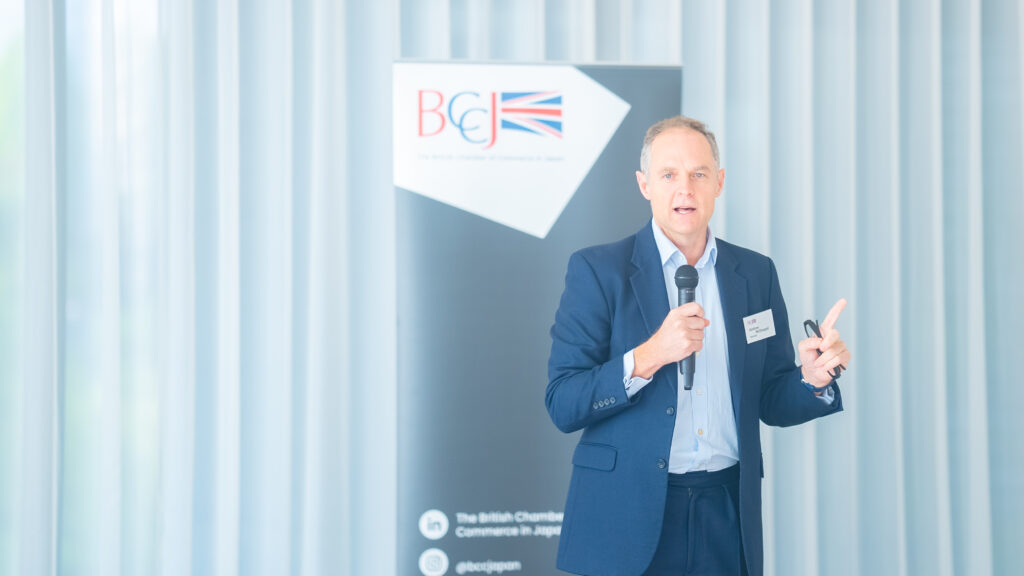Member? Please login
Lessons on Leadership from Global CEO of Rio Tinto, Jean-Sébastien Jacques

Written by BCCJ
July 5, 2019
Past Event Round Ups
Business leaders must embrace partnerships and disruption while staying connected with society in order to achieve success in the 21st century, according to Jean-Sébastien Jacques, chief executive of Rio Tinto. Visiting Japan from the Anglo-Australian firm’s headquarters in London, he spoke at a luncheon co-hosted by the BCCJ and Australian and New Zealand Chamber of Commerce in Japan, in June.
Reflecting the global nature of the mining and metals firm, which has operations on six continents, the event was supported by the Canadian, American and South Africa chambers of commerce in Japan. Jacques began by noting that, in Rio Tinto’s 146-year history, it has developed strong relationships with all the countries represented at the event, including Japan, which “has been a valued customer, supplier and joint venture partner for many decades.”
As global mega trends continue to shape the world and change how people do business in what he calls the current “new era of complexity,” he advised how organisations can maximise the resultant opportunities. He also suggested how human resources can nurture new approaches to leadership “to navigate a winning position.”
Global trends
Jacques outlined four fundamental global trends affecting businesses: the rise of global forces influencing geo-politics and trade, the shift of economic power from West to East, the expansion of technology in enabling and disrupting industries, and society’s expectation for greater environmental responsibility.
Specifically, increased protectionism is threatening global trade while global growth is deaccelerating, despite pockets of growth in emerging markets. Technology companies, meanwhile, are “expanding to service new industries, bringing infrastructure and expertise to deliver significant improvements and savings, while challenging the status quo.”
In Japan, he said, this trend may help fill the labour gap caused by the ageing workforce but, in general, “businesses will need to reskill employees and support career changes as technology removes some jobs and creates others.”
Assessing the growing demand for sustainability, Jacques said “we will be judged on what we do and how we do it. People want to work for a company that is part of the solution.”
Disruption and partnership
To navigate these challenges and maximise the opportunities they offer, Jacques called for leadership that “embraces complexity and partnership in all its forms.”
“Leaders must take bold decisions to embrace challenge and learn to disrupt themselves, while not distracting from their cash-generating core business,” he said, adding that timing to act is critical. Leaders must “always have an eye outside the industry, to understand trends before they hit, to understand customer and society preferences and be able to plan for the future.”
He cited the automobile industry as one industry that has seen this in practice. Firms are using new technology to produce electric and self-driving vehicles and partnering with players such as Uber that now have technologies to enter—and revolutionise—the market.
Though barriers to enter the mining industry remain high, given the need for capital and expertise, Jacques pointed out that this may change. And, despite being one of the world’s largest producers of essential materials, Rio Tinto is far from complacent.
It is applying new technologies to increase efficiency and productivity. In Australia, it is building its first smart mine, which will operate with autonomous trucks, autonomous drills and a digital twin to manage the terabytes of data produced on site. It has also developed the world’s largest robot, in partnership with a Japanese firm.
“The capability to build partnerships inside and outside the industry will be the only way companies can resource—from a dollars and people perspective—big, successful disruptions … So, increasingly, as technology disrupts industry, it will also unite, bringing an ecosystem of different players together in ways that many would never have thought possible,” he said.

Open communication
Jacques also noted the need for leaders to “learn to operate within radical transparency to support complex decision-making and enable businesses to be long-term value propositions.” He recommended the use of modern communication methods “to speak in plain English the benefits of what we do, as well as, potentially, the costs.”
Communication on sustainability is particularly important as it is increasingly “top of mind” for society, employees and shareholders. Leaders, said Jacques, must provide a sense of purpose for employees as the nature of work changes in the world’s transition to a low carbon economy.
He added that that Rio Tinto “must play a part in developing a more circular economy in partnership with our own customers and suppliers.”
Japan as a leader
According to Jacques, Japan is “well placed” to capitalise on the four global trends he identified.
On trade, for example, the country has helped bring the TPP 11 to fruition. But Japanese business is affected by trade dislocation, so it needs to “continue to focus on margin and productivity, including labour productivity,” he said.
On technology, he noted the Japanese government’s Society 5.0 vision to embrace a digital future as well as efforts to bring more women into the workforce and adopt automation to tackle the country’s labour shortage.
“Japanese business has traditionally taken a leadership position on innovation and so there is an opportunity to do so again,” he said.
Reflecting on Japan’s attributes, including “its willingness to face its demographic challenges, location in the heart of Asia, strong heritage in international partnering and ability to pioneer technology shifts,” Jacques closed by suggesting that Japan may lead the world in tackling the mega trends the world faces.
Still, action is required by all. This new era of complexity, he said, means “none of us can stand still.” Businesses and employees “must innovative and adapt to survive.”

Produced by Sterling Content for the BCCJ







